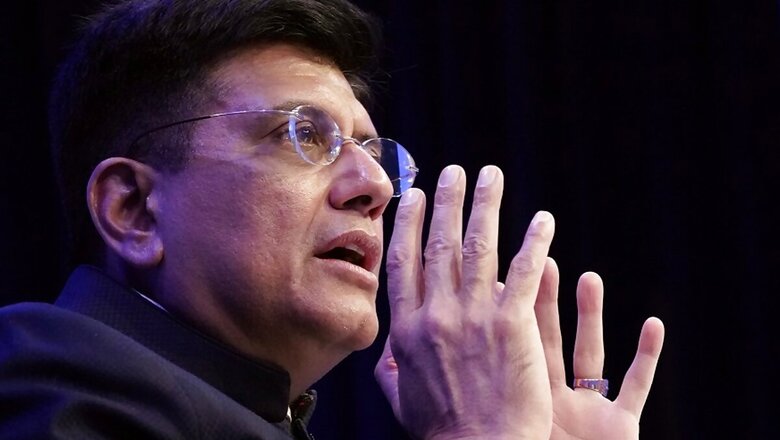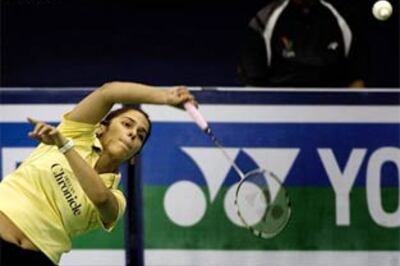
views
Indicating that the India-US limited trade deal is likely to be signed after elections there, Commerce and Industry Minister Piyush Goyal on Thursday said New Delhi has given America "a very good, very balanced offer" for the agreement.
The minister said India is ready to sign the deal "tomorrow", but he has left it to the US to decide on the timing.
"We have almost finalised everything but because of coronavirus everything moved from work-from-home in the US. While India did everything as usual in terms of government functioning, I think the US was not really as much focused as on government functioning and on settling all the balance issues of the trade deal. "So probably, we will have to wait for after the elections (in the US) before we can sign that deal. But I have left it to the US. I am ready to sign tomorrow. We have given them a very good, very balanced offer," Goyal said.
He was replying to questions from students of Indian Institute of Foreign Trade (IIFT). The minister assured that India will gain significantly from the trade agreement, and the US will also get its corresponding share of benefits.
Goyal also assured that India will always protect its agriculture, dairy, MSMEs and domestic local industries and "do a balanced (trade) deal". India's exports to the US are growing rapidly and withdrawal of export incentives by the US under GSP (Generalised System of Preferences) has not impacted the country's outbound shipments to America.
India is seeking exemption from high duties imposed by the US on some steel and aluminium products, resumption of export benefits to certain domestic products under the GSP, and greater market access for its products from sectors such as agriculture, automobile,automobile components and engineering. On the other hand, the US wants greater market access for its farm and manufacturing products, dairy items and medical devices, apart from cut in import duties on some information and communication technology products.
Goyal also said that India is talking to countries including the US, European Union, Russia and the UK for a free trade agreement (FTA). "Now they are in election mode in the US, so probably after elections, we will have aggressive dialogue. We are very keen to have FTAs with these countries, with the EU, with the UK…We are giving a renewed focus for FTAs with the developed world," he said.
Talking further about FTAs, he said the ministry is "now looking at reviewing and renewing" all old trade agreements to bring symmetry and more balanced trade. "We believe that India has competitive strengths and we can truly get the benefit of a fair and equitable expansion of trade if we do FTAs with proper stakeholder consultations and considering India's capabilities to be able to meet the requirements, particularly of quality, of these countries and making sure that these FTAs are not done at the cost of Indian industry and businesses," Goyal said.
He added that in earlier FTA negotiations, "we always got a raw deal". Citing examples of such agreements, he said that as part of the FTA with 10-member ASEAN (Association of Southeast Asian Nations) bloc, India eliminated customs duties on about 74 per cent of goods for Indonesia, but it eliminated duties on only around 54 per cent items for India.
Even in the India-Korea CEPA (Comprehensive Economic Partnership Agreement) signed in 2009, "we found that our exports to Korea was USD 3.4 billion at the time of signing of this FTA" and it has increased to "only USD 4.6 billion in ten years", but imports into India have increased "exponentially and our trade deficit has kept on expanding and increasing". He suggested the students of IIFT to carry out research on these FTAs and look at the way they were negotiated and finalised, and whether India did proper due diligence.
"….Why is it that post these FTAs, by and large, with almost all countries, India actually could not gain greater export business, but imports started flowing in…Large imports started enjoying benefits of these FTAs, whereas Indian businesses could not enjoy these benefits and finally we landed up with unequal trade and greater and greater trade deficits," he said. The minister added that trade should be reciprocal and now countries are moving towards balanced trade, and India will also have to engage with countries to expand trading relationships on its strengths and competitiveness.
Talking about promoting toy manufacturing in India, he said the ministry is working on steps such as looking for anchor investors and clusters. On India's exports growth, he said things are improving as exports in the first week of September recorded over 12 per cent growth as compared to the same week last year.
.

















Comments
0 comment